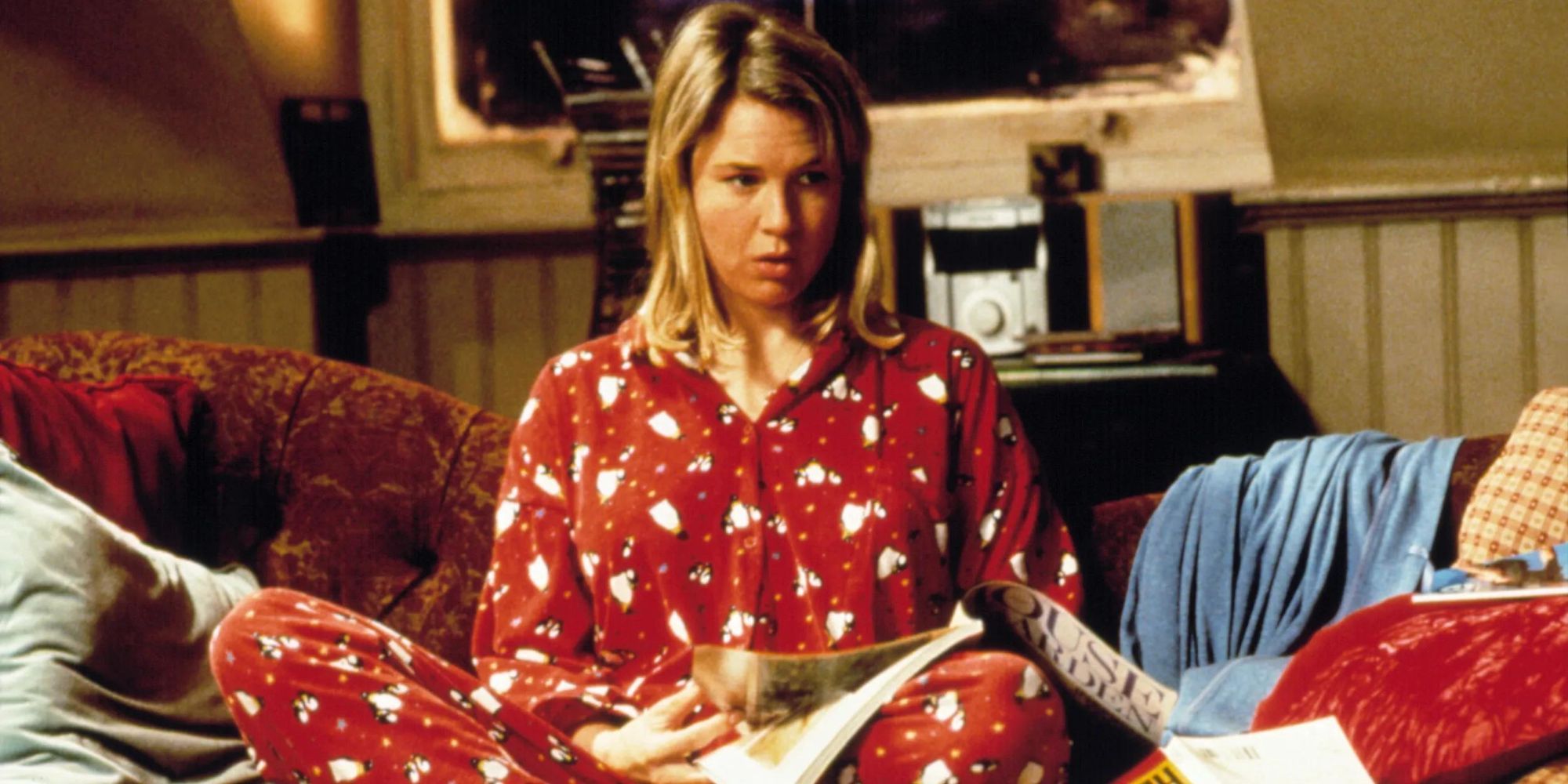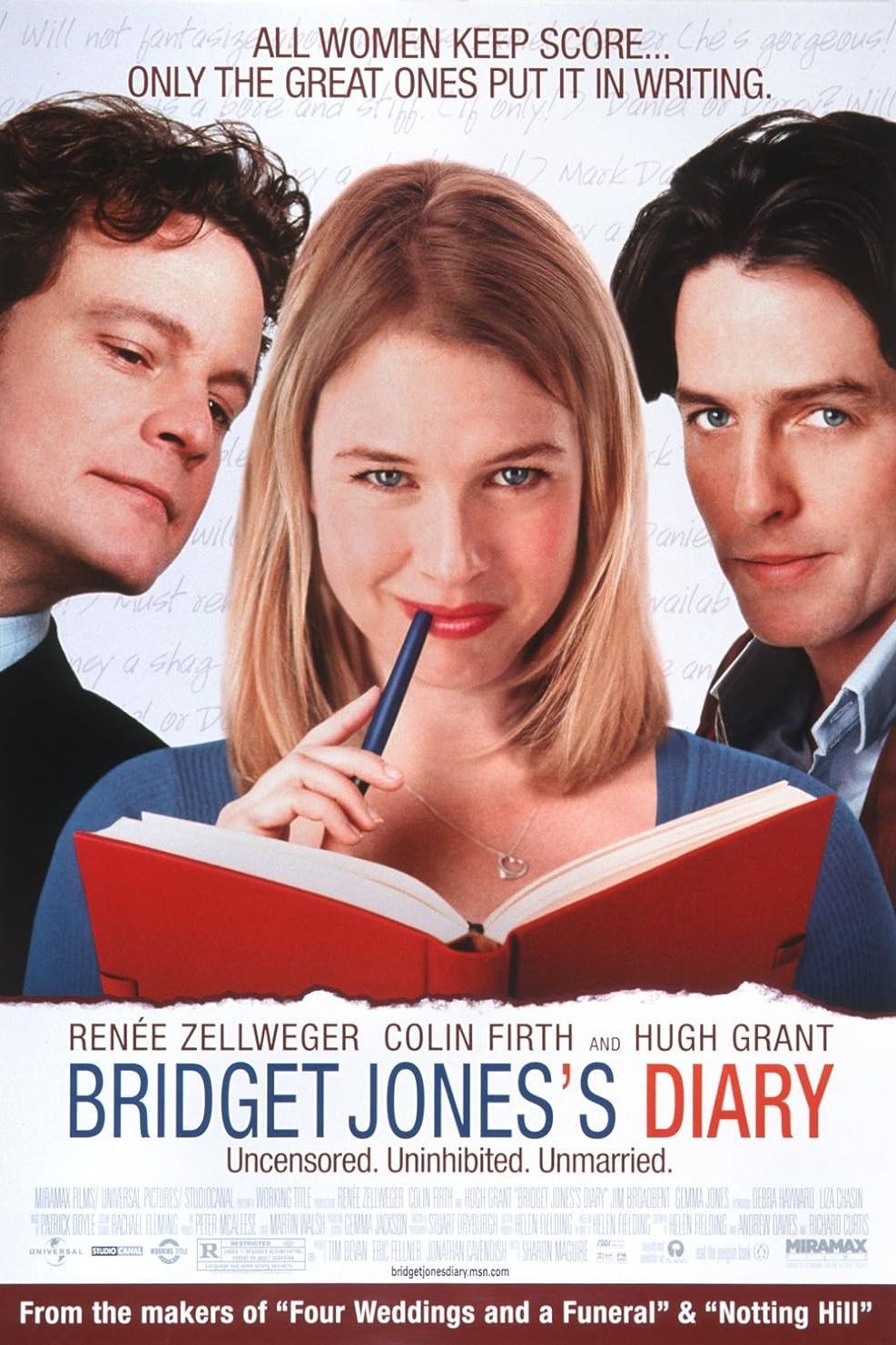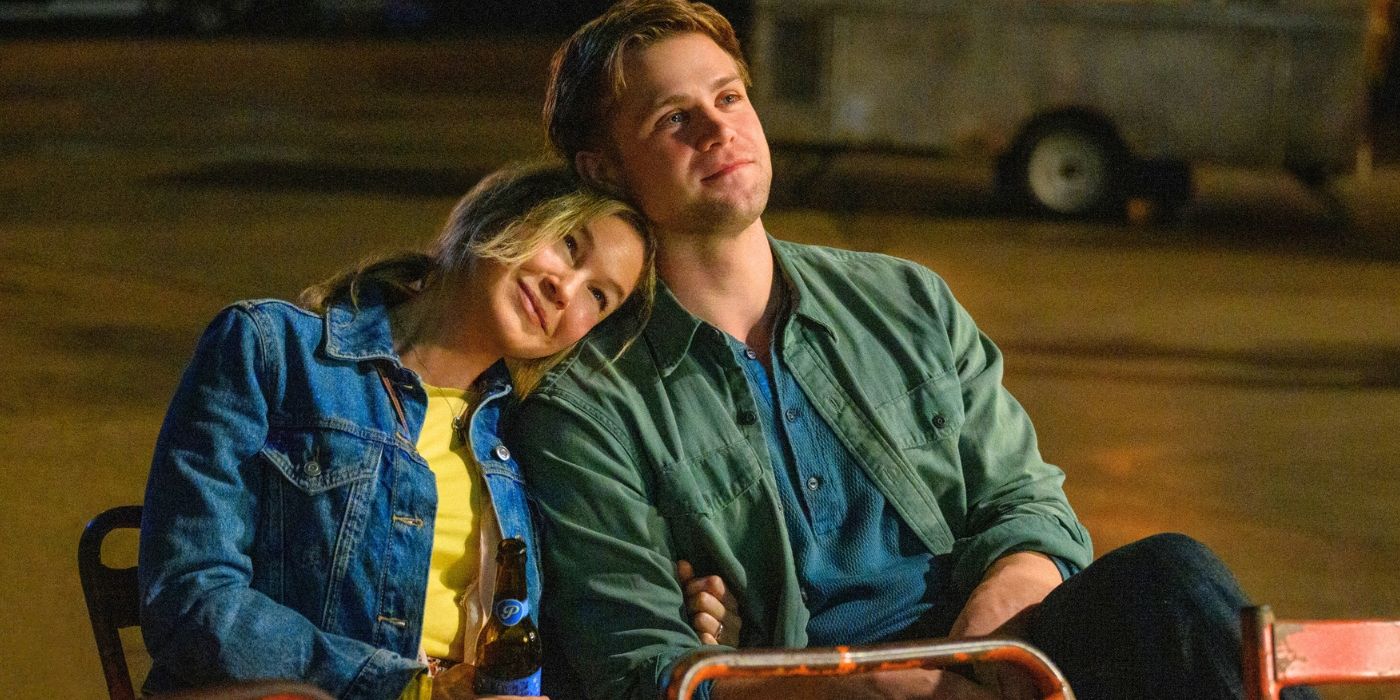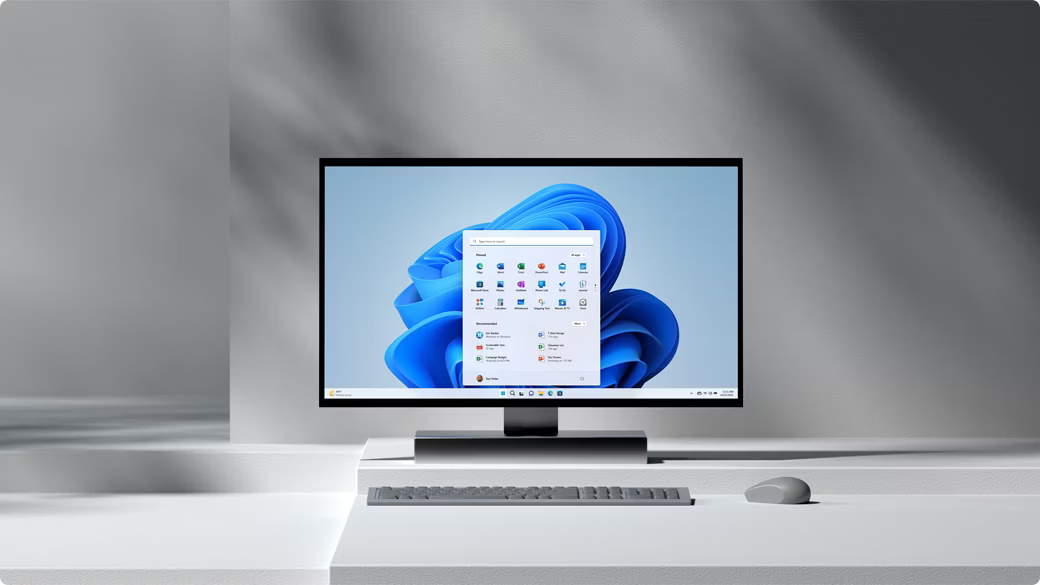As a pre-teen, I used to watch a lot of rom-coms, but as I grew older, I began to find them formulaic and lethargic. However, with the release of Bridget Jones: Mad About the Boy, it felt like the perfect time to watch Bridget Jones’s Diary for the first time and see if it could break the mold. I was already vaguely aware of the rough structure, seeing pictures of people dressing as Bridget Jones (Renée Zellweger) at parties, complete with pajamas and a glass of wine.
I was worried that the humor would be a little outdated considering the 2001 release, and, at times, the film's sexually charged humor was a bit heavy-handed for me. However, it is staggering how recognizable the traits of Bridget herself are over 20 years later. The movie highlights the societal pressure to find a partner while exploring the pitfalls of dating in such a timeless way that makes it relevant 24 years later. Yet, what makes Bridget Jones’s Diary stand the test of time is the gutsy performances; the characters are purposely eccentric and this prevents the movie from being lost in a sea of crowd-pleasing rom-coms. Despite its flaws, I liked Bridget Jones’s Diary just the way it is.
Renée Zellweger Makes Bridget Jones Relatable and Loveable

The success of Bridget Jones’s Diary rests entirely on the shoulders of Renée Zellweger’s performance, and she balances absurdity with believability so tightly. She is the beating heart of the movie, which means she has to ensure that Bridget remains relatable despite the ridiculous nature of some of her actions. There is something very candid about her portrayal that allows the character to garner immense empathy, no matter how abrupt and outlandish she is. The book launch in the first half of the movie sees Bridget showcasing her woeful public speaking skills, a theme throughout. Normally, these sequences in movies evoke an uncomfortable sense of second-hand embarrassment, but the unorthodox charisma of Zellweger allows you to relax. Her British accent is also surprisingly accurate to the point where I had to remind myself that she is American — Texan, no less.
The movie’s narrative format of using Bridget's inner monologue as commentary feeds into this relatability. Of course, this stems from the original novel being written as a diary, but getting an insight into Bridget’s rationale for her actions allows you to see a little bit of yourself in her. She knows Daniel Cleaver (Hugh Grant) is sleazy and not good for her, as she lists off everything she doesn’t want in a man. Yet, when she gets his attention, she can’t help but fall for him, because she simply wants to be loved. It is such a simple motivation that is universally recognizable and makes Bridget Jones an undeniably empathetic protagonist you immediately root for.
Hugh Grant and Colin Firth are Fun but Unrealistic
The love triangle is perhaps the most recognizable trope from Bridget Jones, with the history of Cleaver and Mark Darcy (Colin Firth) injecting tension into their dynamic. They represent two contrasting types of masculinity, almost showing what Bridget thinks she wants and what she usually gravitates towards. Grant’s portrayal of her boss is sleazy, and he is undoubtedly totally inappropriate with his interactions. Their first contact is through email, where he comments on her short skirt, which immediately set off alarm bells for me. By the movie’s conclusion, I was tired of Grant’s insistence on referring to everything as a little "naughty". Yet, there is something charming about his presence that makes Bridget’s attraction to him logical.
In comparison, Mark Darcy is extremely proper and uptight. When he is first introduced at a New Year’s Eve party, he is rude about Bridget, criticizing her life choices, particularly her drinking and smoking. Then, inexplicably, he falls in love with her from afar as he watches her fluster through speeches and consistently says the wrong thing. Darcy is the exact opposite of Bridget, and maybe that is what draws them together, but it can be difficult to fully immerse yourself in their relationship. I think to completely believe the relationship, it is necessary to remind yourself that the movie is from Bridget's perspective — it is quite literally her diary. Therefore, we see the most unfiltered version of her rather than looking through Darcy’s perspective.
Bridget Jones’s Diary makes it easy for you to look past blatant incompatibility because the sentiment is so important. Bridget is, for lack of a better word, normal. She is not a high achiever, or unattainably attractive. Instead, she feels like a real person, so for Darcy to fall for her without wanting her to change makes it easy to see why the movie is a comfort watch for many people.
‘Bridget Jones’s Diary’s’ Humor Hasn’t Aged Well
As expected from a movie that premiered at the start of the century, some of the jokes in Bridget Jones’s Diary just don’t land. The humor is very sexually charged, which isn’t necessarily inappropriate, but, Bridget is often the source of the joke and that is where the discomfort arises. When she changes her career and joins a TV station, she is portrayed as dim and careless, often finding herself in compromising positions. The executives at the network applaud the camera zooming in on her backside as if it is exceptional work, and something about the sexualized slapstick just didn't land for me. This is heightened by a family member, who gropes her as a sign of affection. It isn’t funny, it's just incredibly uncomfortable.
However, some of the comedy in the movie still offers pinpoint social commentary, particularly the dialogue around single life. One scene sees Bridget visit her friend’s house, where every other person is in a relationship. The framing of the couples sitting around the long table contrasting Bridgetseated on her own is a genius representation of her isolation. However, it is her line delivery when she indicates that she is single because “underneath her clothes, she is covered in scales,” followed by the awkward silence that perfectly captures the mental detachment between singledom and marriage.
Bridget Jones is one of the great female heroines of all time because she is ordinary. The movie is far from perfect, but Zellweger is so inviting in the role that you let the inconsistencies in the back of your mind slip away and immerse yourself deep in Bridget’s subconscious. You wince at some of the decisions she makes, but throughout it all, you are rooting for her to find happiness.

Bridget Jones's Diary
Bridget Jones’ personality stands the test of time, but the jokes made about her do not
Release Date April 13, 2001
Runtime 97 Minutes
Director Sharon Maguire
Writers Helen Fielding, Andrew Davies, Richard Curtis
Pros & Cons
- Renée Zellweger's performance is earnest and relatable.
- Bridget's motivations are simple, making them universally accessible.
- The themes of singledom are still hugely recognizable.
- The sexualized humor is outdated and uncomfortable.
- Bridget and Darcy's relationship is not entirely beliveable.










 English (US) ·
English (US) ·